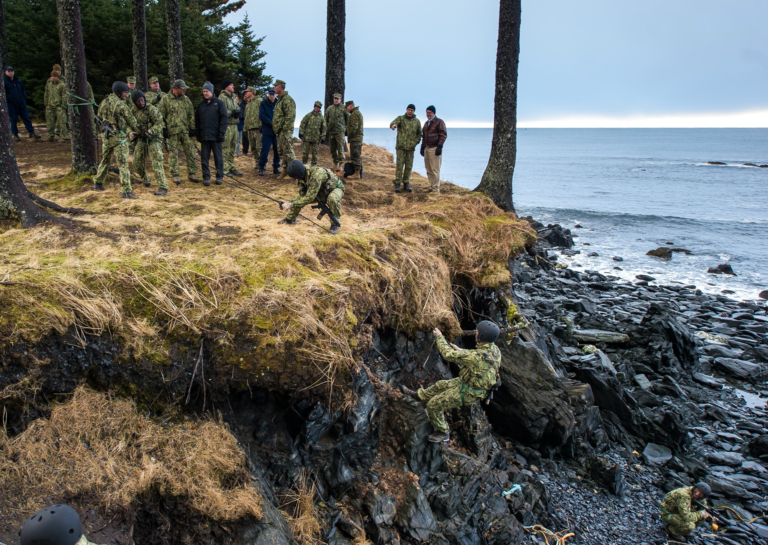‘HOSTAGE APOLOGY’ TOUR CONTINUES FOR PEOPLE IN AUTHORITY
In a letter to parents of the Anchorage School District last week, Superintedent Dr. Deena Bishop adopted language normally reserved for the gender-fluidity warriors of the world: “Social construct.” It means that race is a society idea and is not really real.
In her letter that focused on race and education, Bishop wrote:
“Race is a social construct we are taught from birth. It matters to all of us. Race influences how we live, who our friends are, the quality of our health, the schools we attend, the careers we have, and all too often, how much money we make. The white experience I was given at my birth is not a universal experience. Therefore, I must see race as I lead in ASD,” she continued.
The concept of a “social construct” has been applied to the science of gender by liberals, who contend that gender is not a matter of chromosomes, but is a made-up human idea.
Race, the social justice movement now argues, falls into the same flawed thinking. Race is not a matter of heritage or what you get back from your Ancestry.com swab test. There are no races in the human species, just variations.
[Read this essay on race as a social construct to understand more about the topic.]
“How one perceives her racial identity can shift with experience and time, and not simply for those who are multiracial. These shifts in racial identity can end in categories that our society, which insists on the rigidity of race, has not even yet defined,” wrote Angela Onwuachi-Willig, a professor of law at the University of Iowa College of Law, and is the author of “According to Our Hearts: Rhinelander v. Rhinelander and the Law of the Multiracial Family.”
It becomes more complicated in an era when the social justice war cry is “black lives matter,” at the same time it’s considered racist to say “all lives matter.”
Most parents in the Anchorage School District are probably not familiar with the “race as a social construct” ideology, but many do realize that Anchorage schools are among the most diverse in the nation, and that students are tracked by “race.” The community often brags about having the most diverse student body in the country, information that could only be reported if it was gathered.
But for education leaders in the current politically and racially charged environment, every statement is a trap.
Bishop’s letter then waded into an area that eventually was going to get her in trouble with the social justice warrior class. She wrote that black and brown students do not achieve what white students achieve.
“We must do better for all kids. The School Board, in setting its new goals, has also taken a deliberate stance to address the inequities within our schools, ranging from learning to discipline,” wrote Bishop.
It was a statement of fact and many would agree the schools throughout Alaska are not adequately educating students.
But by Tuesday night, Bishop, who is highly respected in education across the state, was walking back her letter after African-American members of the public complained, both in writing to her and during public testimony at the meeting.
“The language places the blame on students of color,” said Celeste Growden, during the public comment period, when she also criticized the superintendent for her support of school resource officers.
Growden said the school resource officer program need to be defunded because police in the schools are not providing a good climate for students of color.
“To suggest SROs should continue in our schools after a conversation with the police chief, [and] not families of color within our community or our students, is a top-down approach that continues the disenfranchisement of our students,” Growden said. “We must demand more and expect more from our school district.”
Two other commenters criticized Bishop harshly for racial insensitivity.
Bishop was contrite in her explanation for her letter, saying that it is important that the district understand where it stands, that it must “look in the mirror.” She said she didn’t mean to blame the students of color but simply look at where the differences in achievement are with fresh eyes.
“Perhaps my letter didn’t communicate my intent as well as I would have liked,” she said.
But evidently there are races, after all. Bishop, in her report, said that the racial group least reflected in educators who are in the front of the classroom is not black, but Pacific Islander, and the district is actively trying to grow its own educator workforce by paying for the college education of minorities who want to go into teaching, with a special focus on this group.
Overall, she acknowledged the difficulty of having a discussion about race when emotions are running high in the minority communities.
“There aren’t any excuses if I didn’t communicate well, and it didn’t sit well with folks, but it just demonstrates that probably because of the emotions that it’s something that we should be addressing in ASD, and I’m willing to do so,” Bishop responded.
A school-community discussion about the school resource officer program is scheduled for 4 pm July 21. The board, the administration, school resource officers, and members of the community will be welcomed.








